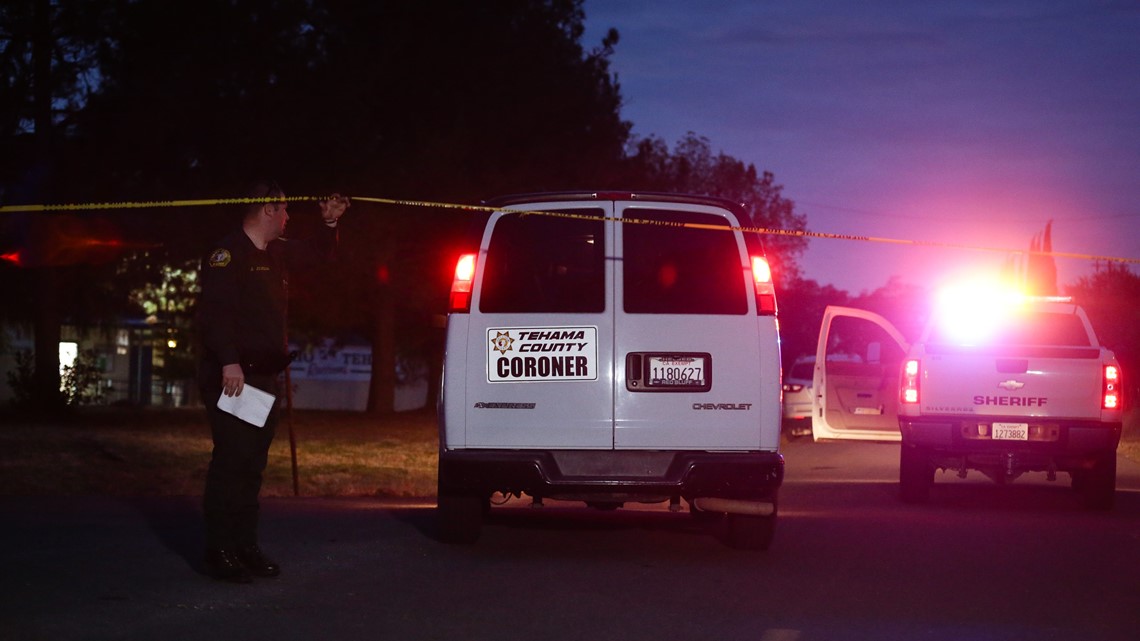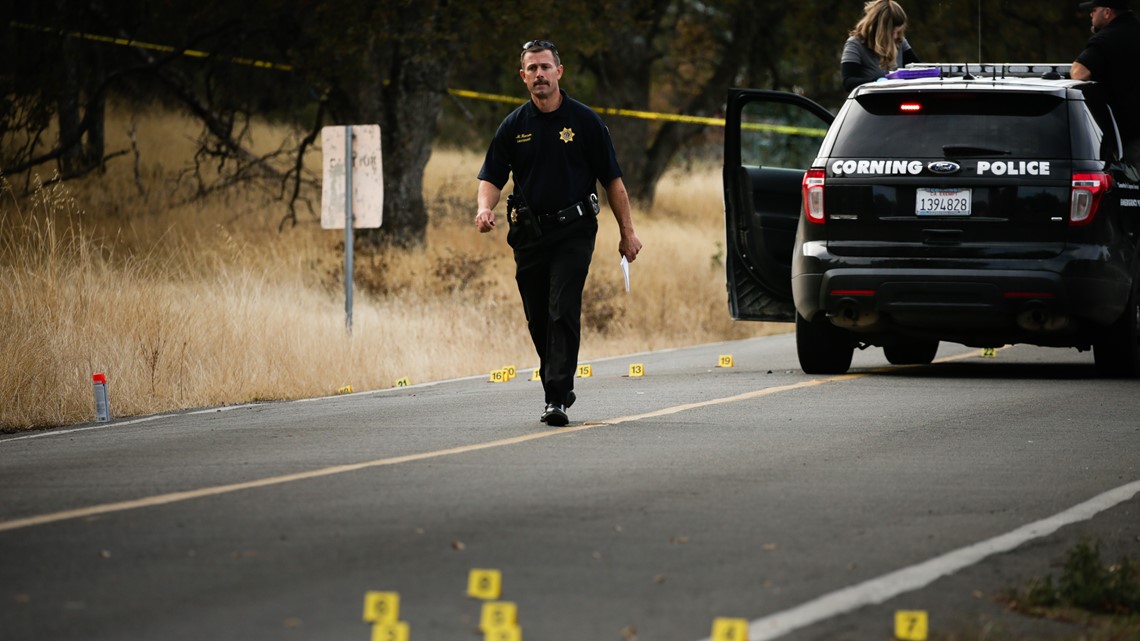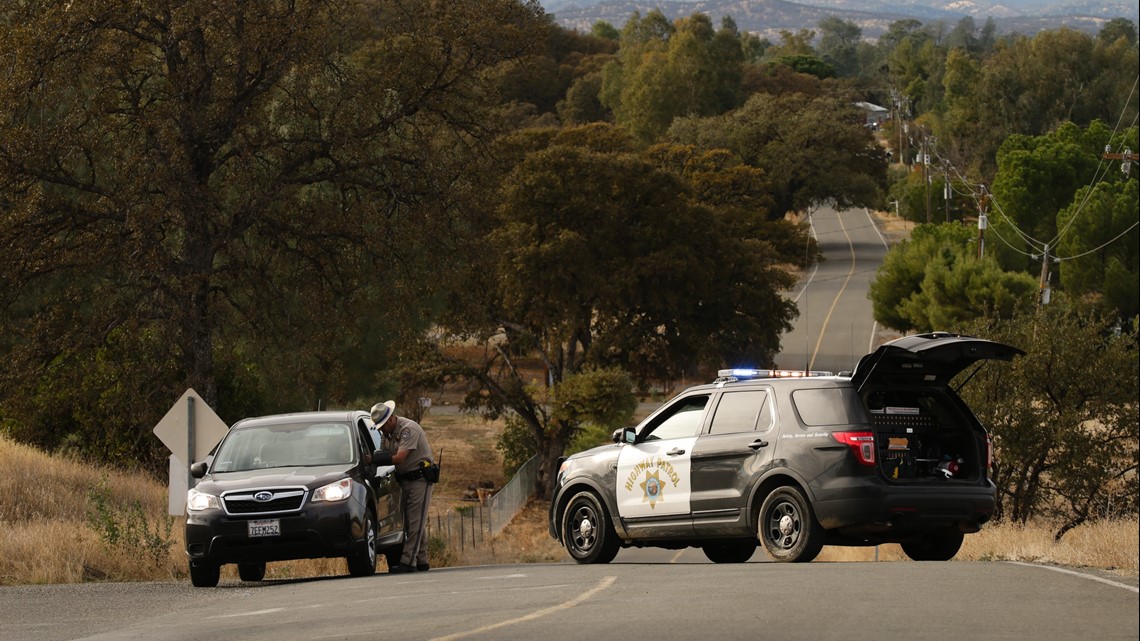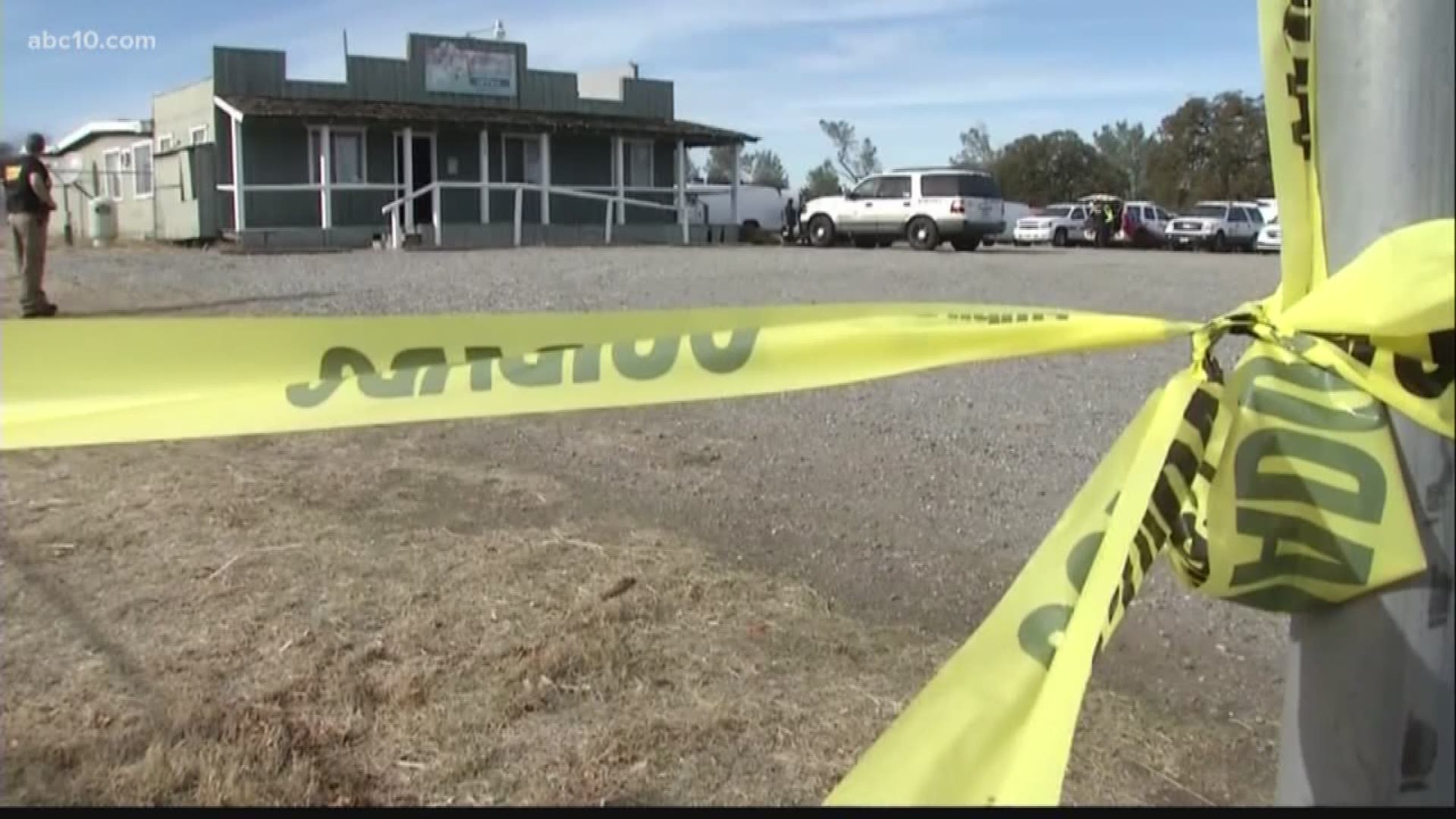If you're viewing on the ABC10 App, tap here for multimedia.
Inside the office of Camelot Properties in Rancho Tehama southwest of Red Bluff, a vintage navy blue “Where the Hell Is Rancho Tehama?” T-shirt hangs framed on the wall.
It’s been exactly a year since the shirt became irrelevant.
Nearby, over in the wood-paneled office of the town’s homeowners association, a wreath of jewel-toned paper cranes serves as a dark reminder of how Rancho Tehama came to be widely known.
“We believe in paying it forward, and in the past have collected signatures on banners for other communities who have experienced mass violence,” reads a letter that came with the wreath, sent by survivors of the Aurora, Colorado theater shooting of 2012.
The town holds other reminders of Kevin Janson Neal’s Nov. 14, 2017 killing spree that left six dead, including him. A monument, painted commemorative rocks and “Rancho Strong” banners now make up the landscape of a town still caught somewhere between healed and healing.
“You try to put it back, you know, and not think about it,” said Micki Wilson, the bookkeeper at Camelot. “But it’s always there.”
‘No reason’
Next to family pictures, a calendar and other office staples, there’s a box by Debbie Elworthy’s desk at the homeowners association full of editions of the children’s book “Someone I Love Died.”
A church ordered them but rejected the books because it felt they sent the message that everybody gets into heaven, Elworthy said. They gave her the books to pass out on her own because, to her, "our God is a much kinder God than that."
Neal's sister has said the gunman struggled with mental illness all his life, and Elworthy tries to focus on that instead of anger at what it might have led him to do.


"I guess we all kind of go on our own faith," she said. "I feel a lot of people, down deep in their core of their heart, they all feel the same thing: that forgiving is the best way for you to move on."
Still, Elworthy wants to make sure the community doesn't forget any of the victims.
She's been passing the books out since the shooting, and the association has also held two memorials to help the community cope.
Elworthy tries to strike a balance between helping people process the grief and get a break from it – especially the children, considering Neal took his shooting spree to the town’s elementary school. He just couldn’t get in that day.
“The memorials kind of tried to do it where we can safeguard the children’s hearts, because this is something that is only keeping it alive, in a lot of their minds, by the adults talking,” said Elworthy, president of the association.
The school was closed on a recent Friday, and a message to its office wasn’t returned. An employee at the Corning Union Elementary School District, which oversees it, said the school is declining interviews from now on so that it can heal.
Out front, a “Rancho Strong” banner still hangs a year after the incident.
“We just could not believe…at the school of all places,” Wilson said. “There’s so many school shootings now...There’s no reason. No reason for people to go in schools and shoot them up.”
‘We’re not exclusive’
Wilson is from the Bay Area, and she jokes to her friends still there that her only “traffic jams” now happen when a cow wanders into the road.
Offset by a panorama of yellow fields and dramatic bluffs, Rancho Tehama used to be an actual sheep ranch. That’s why some residents just call it “The Ranch,” Wilson’s husband and the owner of Camelot, Vern Wilson, said.
By now, many of the people who live there are Bay Area expatriates like the Wilsons, who wanted a break from the noise, costs and congestion. Rich Gutierrez, the homeowners association's treasurer, is from Petaluma, and he’s confident the home he and his wife bought in Rancho Tehama would have cost twice as much there.
While The Ranch offers them that relief from the stress of city life, the shooting was a grim reminder that they aren't guaranteed anything living out there, either.


“It’s sad that these things have to happen. But, I mean, it happens everywhere,” a woman who would only identify herself as Roman said. “We’re not exclusive.”
Roman, herself from the Bay Area, said she wants better gun control. She says she’s in the minority in the mostly conservative community, though.
“I think what it has done is caused everybody … to think about, well, what if this ever happens again? Not saying, ‘It can’t happen to me and it won’t happen,’” she said. “What’s going to happen if it happens again?”
‘Pushing forward’
Plucking herbs in her garden — therapeutic by itself, but made even better because she can turn them into tasty dishes, Roman explains — her first comments on the shooting when asked by a reporter were that it “never should have happened.”
“It was a shame that it wasn’t taken care of from the start, that it had to develop into what happened,” she said. “You call up the dispatch … you feel like you’re the criminal.”
Those accusations the Tehama County Sheriff's Office didn't take complaints seriously enough about Neal — who was banned from owning guns — have been voiced from the start.
Now, some loved ones of the victims have filed a lawsuit against county law enforcement agencies centering on those complaints, the Red Bluff Daily News reported.


Survivors of the shooting either didn't respond to requests to be interviewed or declined to talk.
“Although we’re staying strong together, it is something that some people may never forget,” Gutierrez said.
But Gutierrez said one bright spot that’s come from the shooting is that residents are actively trying to make the place safer, and they're doing it together.
From more engagement with law enforcement to community meetings and even new evacuation plans, Gutierrez said people are more involved in the community than he’s seen in his 12 years there.
“I think at one time, they may have felt a little standoffish toward the board of directors here and calling law enforcement,” he said. “But … we’re staying strong, there’s been a lot more involvement and we just keep pushing forward.”

